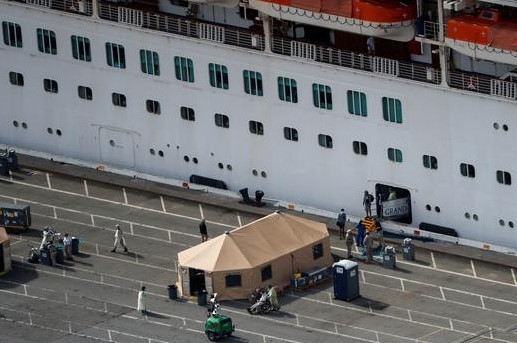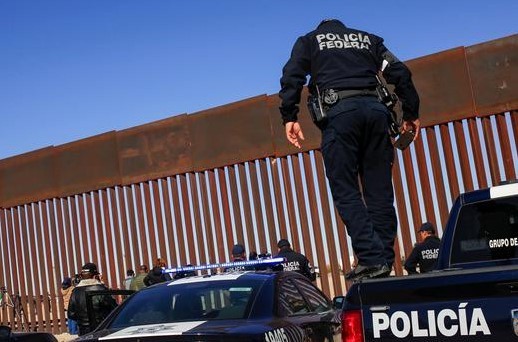Mexican City of Mazatlan: "We Are Safe From Coronavirus"

The Secretary of Health of the Sinaloa State Government, Dr. Efren Encinas Torres, said Mazatlan is safe from coronavirus after the Grand Princess Cruise Ship arrived on February 17.
Various media networks have been spreading rumors of confirmed coronavirus cases appearing in the city of Mazatlan. Torres said the rumors are "fake news" and urged the public to believe official reports.
The Grand Princess Cruise Ship docked in Mazatlan on February 17, causing rising fear among residents. The ship was said to have passed through Mazatlan, Manzanillo, and Puerto Vallarta.
Oscar Perez Barros, Sinaloa's Secretary of Tourism, said proper international health and preventive measures were taken.
Barros also said no suspected cases of COVID-19 were detected.
The ship reportedly presented all the papers required before it was allowed to arrive at the port of Mazatlan.
Authorities also revealed it worked together with the Secretary of Health, the Shipping Companies, the Integral Port Administration and Los Cabos and Puerto Vallarta to monitor the Grand Princess.
Officials announced the borders will remain open despite the coronavirus threat.
The US Customs and Border Protection (CBP) said they are working with the Centers for Disease Control and Prevention (CDC) to improve screening procedures at the ports.

Border officers will rely on historical records, questioning, and observation to determine who may need additional health screening.
According to a report by the World Health Organization, Mexico has seven confirmed cases as of Sunday.
Mexico's health secretary also said a handful of travelers who recently came back from Italy in Baja California tested negative for coronavirus.
The CBP is also identifying people who have recently traveled to high-risk countries such as China and Iran within the past two weeks to have them undergo additional health screening.
Border agents will send suspected cases to a secondary enhanced health screening where the CDC will determine if additional measures are required.
Migration Protection Protocols were implemented on Thursday. The policy, which is also called "Remain in Mexico," is no longer observed in Arizona or California.
The protocol began in San Diego in January 2019 as a pilot program. It requires asylum-seekers from Central America to wait and seek asylum proceedings in Mexico.
The policy has returned over 60,000 people---25,700 in the Mexicali/Tijuana region.
The Trump administration will reportedly send out troops to the San Ysidro Port of Entry and to El Paso to assist CBP agents with security.
CBP spokesman DeSio said the Department of Defense is concerned about asylum-seekers forcing their way in the US once the injunction goes into effect.
The troops will serve as a larger and more comprehensive security effort to ensure the safety of everyone traveling across the borders.
Health officials are worried about the devastating effect the coronavirus will have on the thousands of migrants and asylum-seekers living on the US-Mexico border.
Matamoros, Juarez, and Tijuana are occupied by high concentrations of migrants who have been living in makeshift encampments and are relying on volunteers for necessities.
Although none of the border cities have reported confirmed cases, officials say they are ill-prepared to deal with a major public health crisis.
A group of NGOs is coordinating with the Mexican government in preparation for a coronavirus outbreak.
Subscribe to Latin Post!
Sign up for our free newsletter for the Latest coverage!
















